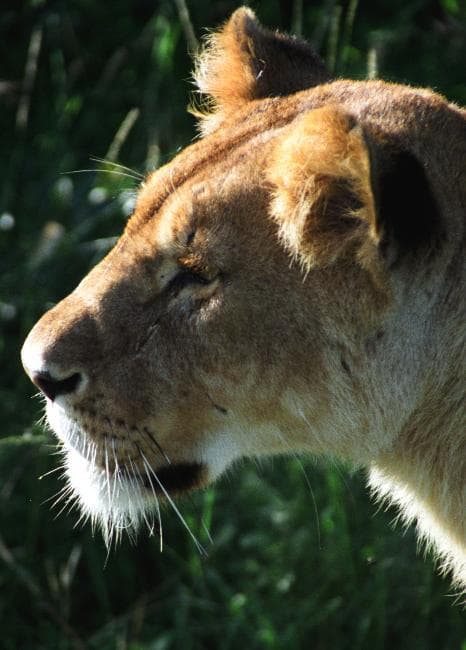The East African country of Kenya rises from a low coastal plain on the Indian Ocean to mountains and plateaus at its center. Most Kenyans live in the highlands, and Nairobi, the capital, is here at an altitude of 1,700 meters (5,500 feet). Even though Nairobi is near the Equator, its high elevation brings cooler air. To the west of Nairobi the land descends to the north-south running Great Rift Valley—the valley floor is at its lowest near Lake Turkana in the deserts of northern Kenya. Around Lake Turkana, scientists have discovered some of humankind’s earliest ancestors—a fossil known as Kenya Man was dated at 3.5 to 3.2 million years old.
Both free enterprise and a measure of political debate helped make Kenya one of Africa’s most stable nations after it achieved independence from Britain in 1963. But, more recently, corruption has been an undermining force, and the government—pressured for reform—moved to a multiparty system in the late 1990s. Barriers to progress are high population growth, electricity shortages, and inefficiency in key sectors.
Forty ethnic groups, including Kikuyu farmers and Maasai cattle herders, crowd the countryside, still home to three-quarters of Kenya’s people. Intense competition for arable land drives thousands to cities, where unemployment is high. In Nairobi, East Africa’s commercial hub, skyscrapers abruptly give way to slums. The government has stepped up efforts to stem poaching, particularly of the elephant and black rhino. Tourism is essential to the economy, and Kenya is one of Africa’s major safari destinations.

FAST FACTS
Population: 33,830,000
Capital: Nairobi; 2,818,000
Area: 580,367 square kilometers (224,081 square miles)
Language: English, Kiswahili, numerous indigenous languages
Religion: Protestant, Roman Catholic, indigenous beliefs, Muslim
Currency: Kenyan shilling
Life Expectancy: 46
GDP per Capita: U.S. $1,100
Literacy Percent: 85
ECONOMY
- Industry: Small-scale consumer goods (plastic, furniture), agricultural products processing; oil refining
- Agriculture: Tea, coffee, corn, wheat; dairy products
- Exports: Tea, horticultural products, coffee, petroleum products, fish


Source: The National Geographic
CIA- The World Factbook










